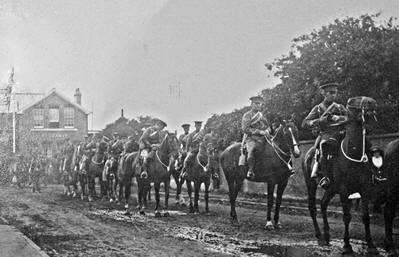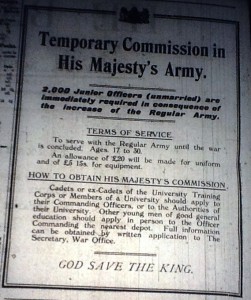In this neighbourhood, the residents in the country houses, farmers, and tradesmen have all willingly co-operated with the local representatives of the War Office in providing horses for the war. Colonel F. Hurt-Sitwell, Captain Yates, and Mr Wood Page have been responsible for the purchase of the horses for some miles around Banbury. The regular forces have been supplied with about 40, and the Yeomanry with about 130, and there are several more about to be purchased. We have been informed that there has not been the slightest difficulty in procuring horses suitable for guns, and a few heavy draft horses for Yeomanry purposes. The gentlemen mentioned have been out in the country districts every day since Wednesday, and Mr Wood Page has made an inspection of all the horses for Major the Hon. Eustace Fiennes, M.P., Squadron of Yeomanry. A valuable van horse was procured from Messrs. Hunt, Edmunds, and Co. In all the villages the purchasers have been well received, and met with no difficulty of any kind. Bakers, or people working only one horse, have not been asked to sell. Everybody has been treated with consideration. As regards the rumour to the contrary, we have been asked to state that the purchasers have taken no horses which can be used for harvest work at all, and as far as horses are concerned, the ingathering of the harvest need not be interfered with. In a few instances there may be a dearth of labour, but it is by no means a general experience. There will be many labourers out of work, probably, in Banbury, and they would be wise if they availed themselves of any opportunity for procuring healthy work for a few weeks in the country.
Banbury Guardian, August 1914

